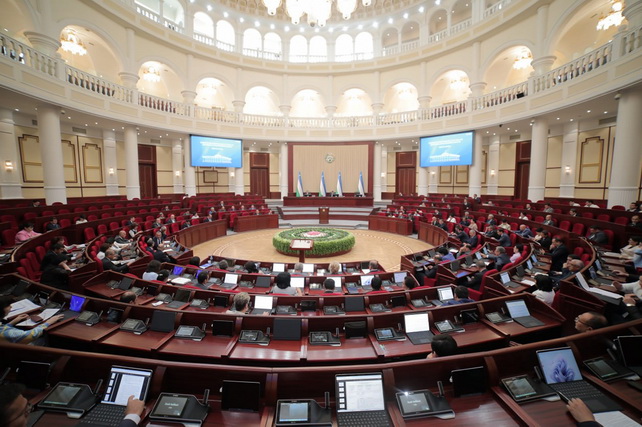
Deputies approve measures to accelerate judicial procedures and shorten the time for court decisions to take effect
Deputies approve measures to accelerate judicial procedures and shorten the time for court decisions to take effect
Tashkent, Uzbekistan (UzDaily.com) — At a session of the Legislative Chamber of the Oliy Majlis, the first reading was held for a draft law aimed at expanding the use of simplified procedures in the consideration of civil and economic cases.
The goal of the draft law is to reduce the duration of judicial proceedings and increase the efficiency of economic activity.
The document introduces amendments to the Civil Procedure Code and the Economic Procedure Code, providing for an increase in the maximum value of claims eligible for simplified proceedings in both civil and economic cases.
Under current legislation, cases with relatively small dispute values are processed in a simplified manner: for individuals — claims up to five times the Basic Estimated Value (BEV), for individual entrepreneurs — up to ten BCV, and for legal entities — up to twenty BCV.
The draft law raises these thresholds. Under the proposed amendments, the maximum value of claims eligible for simplified proceedings is set at: for civil disputes — up to 150 BEV for legal entities, up to 100 BEV for individual entrepreneurs, and up to 50 BEV for individuals; and for economic disputes — up to 150 BEV for legal entities and up to 100 BEV for individual entrepreneurs.
As a result, a significant number of civil and economic disputes will be resolved more quickly, and court decisions will come into legal force much sooner.
As noted during the session, once adopted, the draft law will shift most cases currently handled under the general procedure to the simplified procedure, reducing the time for court decisions to take effect from 30 days to 10 days.
This is expected to lower the share of non-performing and inactive assets on bank balance sheets and speed up the resolution of economic disputes.
It will also reduce the burden on the judicial system, helping ensure financial stability for banks and business entities.
The draft law was approved by deputies at its second reading.